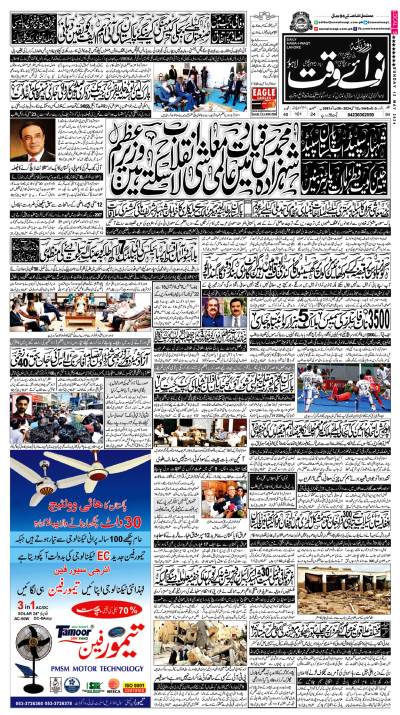ISLAMABAD-Women Democratic Forum (WDF) on Saturday paid tribute to the women who stood up against the dictatorship era of 1980s laying the foundations for feminist resistance against oppressors.
At a panel discussion held at National Press Club and attended by political workers, activists, students and feminists from all walks of life, speakers reflected on the various aspects of socialist feminism.
The speakers included academic and human rights activist, Dr. Farzana Bari, Secretary Information for WDF and Awami Workers Party, Punjab, Tooba Syed, feminist researcher and Secretary Finance of the Rawalpindi-Islamabad chapter of WDF, Zoya Rehman, and President of the Punjab unit of the Awami Workers Party, Ammar Rashid. The keynote address was given by WDF President and Secretary General of the Awami Workers Party, Ismat Shahjahan. Giving a historical perspective of women’s resistance in Pakistan, Shahjahan paid tribute to the brave women who stood up against the most furious military dictator and patriarch in Pakistan’s history. “As part of the neo-imperialist war by the US on Saur Revolution in Afghanistan, General Zia promoted and used toxic masculinity and patriarchal extremism to ensure a supply of jihadi fighters,” Ismat said. She said as a result, we now have an overgrown patriarchy, which is extremist, fanatic, and violent. In response to a question about how feminism can increase its appeal to the 100 per cent, particularly working class women, Bari said that what is needed is the recognition of the economic value of the free domestic labour that women perform, which is neither compensated nor shared.
“This labour needs to be collectively shared,” Dr. Bari said. “Not just by men in the family, but by state, through the provision of childcare and caring for the elderly, for instance.”
Syed shed light on how women’s bodies are controlled and constructed by society and the manner in which the legal, military and social structures work together to define how women should carry themselves in public and private spheres.
She further added that women and men are not equal citizens in eyes of our state with laws favouring men. One example of that, she said, is the state’s refusal to consider violence inside the private spheres as violence. Rashid spoke about the crisis of masculinity and its intersection with patriarchy. He drew links between colonialism and the desire to assert control over people, land, nature and women, who are also seen as property.
He said that there is a clear connection between fascism and the toxic masculinity, some of the greatest victims of which are men themselves. “Men too are victims of imperialist wars, of the need to express power and control over others. The greatest harm is to ourselves, as in the process we lose our humanity. We deny our emotions, the ability to connect with others.”
Monday, May 13, 2024
WDF pays tribute to women who stood up against dictatorship
Amir Muqam vows to resolve GB’s issues
May 12, 2024
LESCO detects 79,021 power pilferers in 232 days
May 12, 2024
Four suspected terrorists killed in Lahore police encounter
12:42 PM | May 12, 2024
A Global Problem
May 12, 2024
Symbolic Victories
May 12, 2024
Taxing Toxins
May 12, 2024
Stark Hypocrisy
May 11, 2024
Protection For All
May 11, 2024
Data nexus
May 12, 2024
Urban disruption
May 12, 2024
Media representation
May 12, 2024
Data-driven assessments
May 11, 2024
Coastal conservation
May 11, 2024
ePaper - Nawaiwaqt
Advertisement
Nawaiwaqt Group | Copyright © 2024





